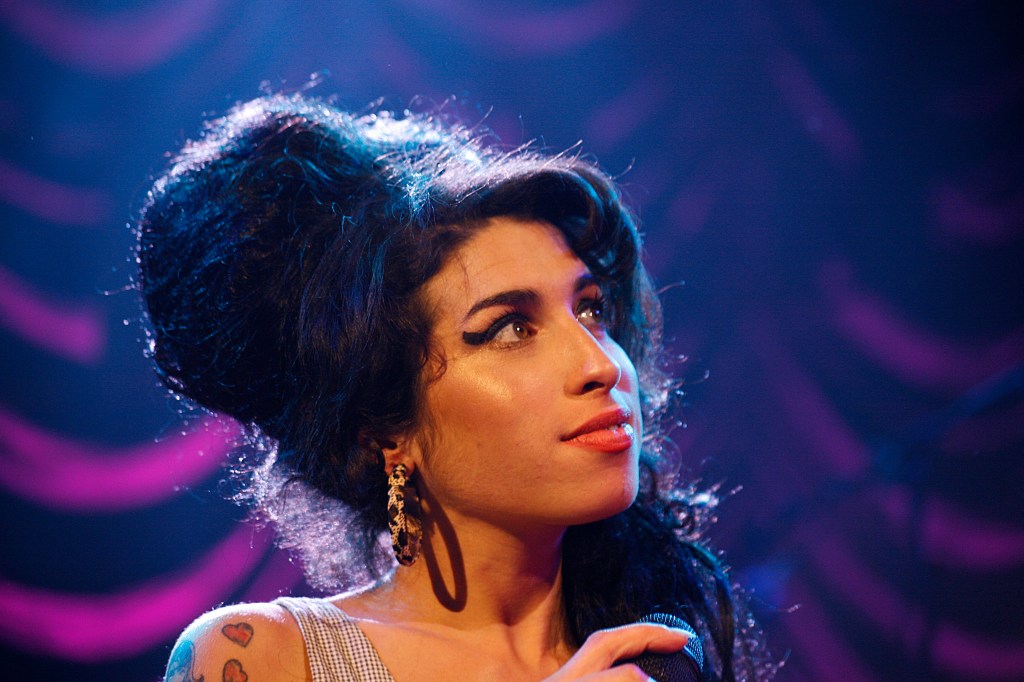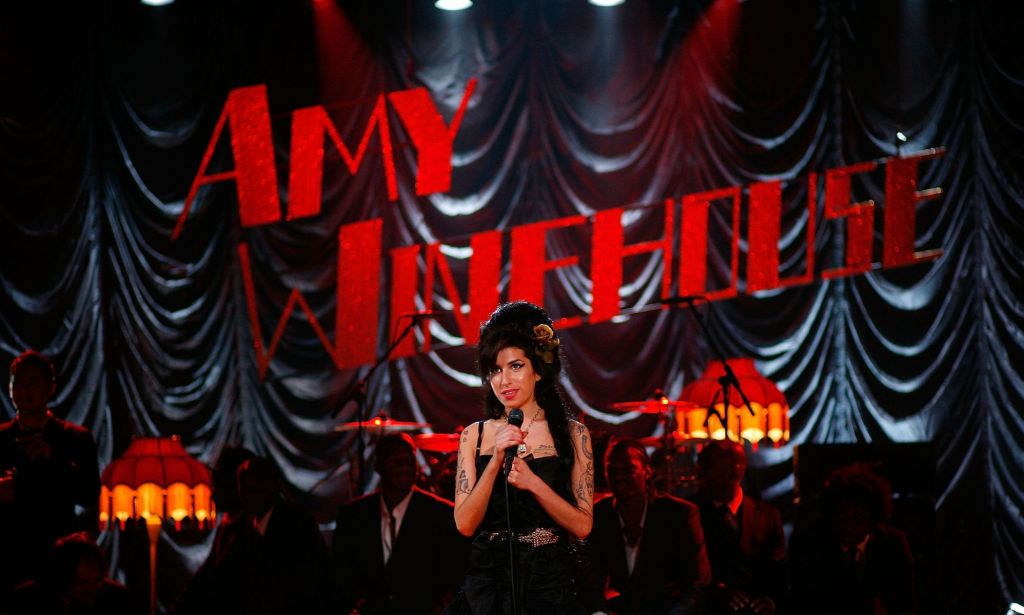Back To Black: Five reasons Amy Winehouse was loved by the LGBTQ+ community
“Back To Black” singer Amy Winehouse had a huge impact on queer people and LGBTQ+ artists. (Getty/Pexels/Canva)
Newly-released Amy Winehouse biopic Back To Black has divided the critics. While some reviewers have dubbed it a “grotesque insult” and a “poor, poor piece of filmmaking”, others believe Marisa Abela’s “extraordinary” performance in the lead role saved Sam Taylor-Johnson’s film from disaster.
Fans may feel Back To Black is morally indefensible, considering it’s another in a long line of media artefacts to paw back over the singer’s struggles with bulimia and substance abuse. The singer died of alcohol poisoning in July 2011, age the age of just 27.
But one thing is certain: nothing can taint Winehouse’s legacy.
Everyone saw something in Winehouse that they admired: be it her unfiltered lyricism, her distinctly coarse vocals, or her unflinchingly ballsy attitude.
For a generation of LGBTQ+ people and artists, it was a combination of the lot. Here are five reasons why she was, and always will be, cherished by the LGBTQ+ community.
Amy wasn’t shy about owning and exploring her own sexuality
Winehouse was never afraid to touch on her sexuality, even if it often came out in jest. There was the time she called a reporter “fit” after describing her own Brit Awards performance as a “piece of sh*t”.
Then, she told Perez Hilton that she was off to have sex after their interview, and on another occasion she apparently joked that she only turned into a lesbian after “four sambucas”.
But there was reportedly another element to her sexuality that she never commented on publicly.
In 2021’s BBC documentary Reclaiming Amy, which marked the 10th anniversary of the “Valerie” hit-maker’s death, long-term friend Catriona Gourlay claimed the pair had a “unique” and “undefined” relationship for many years.
That connection and their love for each other left Winehouse muddled, according to Gourlay.
“We just loved each other very much and what I took from it, knowing her, is that she was confused about what it made her. She used to write notes while I was sleeping, saying: ‘You’re the most beautiful girl I’ve ever seen. How can you look as beautiful asleep as you do awake?'”
Amy Winehouse inspired a generation of LGBTQ+ musicians
Despite only releasing two albums – 2003’s Frank and 2006’s Back to Black – Winehouse’s impact on the music industry cannot be overstated.
She was a Grammy-Award-winning, critically acclaimed star, with a lyrical pen like no other artist this century and an instantly recognisable smokiness to her voice. Without her, it’s questionable whether artists such as Lana Del Rey, Adele, and Florence + the Machine would be who they are today.

She had a particularly impact on a legion of LGBTQ+ artists, with Billie Eilish arguably putting it best: “She wasn’t trying to be anything she wasn’t.”
Other queer stars, including Olly Alexander, Sam Smith, Emeli Sandé and Jake Shears, have cited Winehouse as an influence on their careers.
Amy also inspired drag performers with her unique style
Pop starlets have influenced drag performers since the dawn of time, but Amy Winehouse is one singer drag fans might not always think of as a source of inspiration.
On the other hand, some might say Winehouse dabbled in drag in her own way when it came to her signature beehive, the eyeliner, red lipstick and tattoos, particularly as she, as many drag performers do, took her look and style from a range of influences, including classic girl group The Ronettes and Brigitte Bardot.
And we have Winehouse to thank for Drag Race UK finalist and fellow Camden resident Baga Chipz entering the entertainment world, considering it was her impersonation of the late star that got Chipz her first big drag gig. She would go on to impersonate and lip-sync to Winehouse on the show in 2019.
At the London premiere of Back To Black, Drag Race UK favourite Bimini donned her own beehive, much to the joy of fans, as a tribute to the star, while there are dozens of drag Amy Winehouse makeup tutorials online.
Plus, Winehouse’s influence is clear in several notable drag performances. Who can forget a young boy’s drag tribute on Got Talent España, or the time Queens of the Universe’s eventual winner, Grag Queen, blew the judges away with her rendition of “Rehab”?
Amy knew her fan base was full of homosexuals, and she loved it
There are numerous clips of Winehouse on X/Twitter, and one that routinely does the rounds is her declaring that she is a sex symbol – but only to a certain group of people.
In the clip, she is playing pool with her then husband Blake Fielder-Civil, as Kelly Osbourne asks: “Do you consider yourself a sex symbol, Miss Winehouse?”
Her response? “Only to gays.”
It wasn’t the only time she acknowledged her legion of queer supporters, either. Once, when she was too jet lagged and hungover to finish a gig, she proclaimed that she “had a mob of angry homosexuals” after her, and she’s so real for that.
Amy was vulnerable, but powerful, too
For decades, queer people have been drawn to figures who, despite their struggles, set themselves apart from the crowd. Think Judy Garland, Oscar Wilde, George Michael, Princess Diana and Freddie Mercury.
Winehouse faced far more battles than most people do in the first 27 years of their life, not least drug abuse, alcoholism, depression, self-harm, and press intrusion into her life. And yet, to the very end, she wasn’t afraid to be exactly who she was: a fierce individual who said and did what she wanted, and an absolute powerhouse in the music department.

To queer people who face derision for being who they are and doing what they love, there’s a level of understanding and respect for Winehouse that others may not have.
Despite every negative headline, every naysayer, and every attempt at tarnishing her legacy, Amy Winehouse will always be an untouchable legend.
Back To Black is in cinemas now.
How did this story make you feel?
